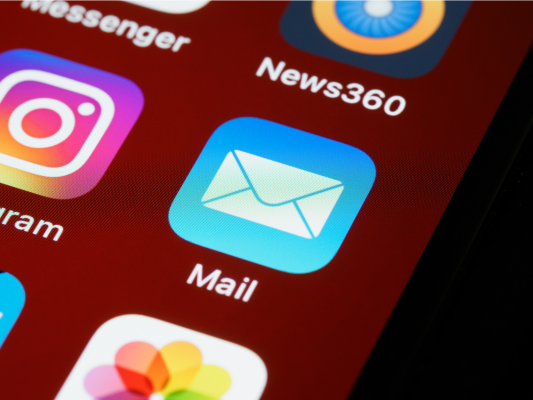Research indicates that 80% of consumers are more likely to make a purchase when brands offer personalized experiences. You can find many other studies on this topic, and they all point to the same: customers prefer personalization, and marketers agree that personalization works. If you still don’t personalize your email campaigns; you should start right now.
We have discussed “personalization” in different articles before, however, it would be useful to briefly recall the subject.
Personalization in e-commerce refers to the practice of tailoring the online shopping experience to individual users based on their behavior, preferences, demographics, and past interactions with your brand. It involves delivering relevant content, product recommendations, and promotional offers to each customer, with the aim of enhancing engagement, driving conversions, and fostering customer loyalty.
What is email personalization (and why is it important)?
One of the marketing channels (and maybe the most important one) where personalization can be used effectively and efficiently is email marketing. Email personalization is essential for building relationships with leads and customers. Customers appreciate when brands add personal touches and pay attention to small details when communicating with them. The more you personalize a marketing email, the less likely it is to get lost in the recipient’s spam inbox.
Email personalization is important for several reasons. Personalized emails:
- are more likely to capture the recipient’s attention, leading to higher open rates, click-through rates, and overall engagement.
- can drive higher conversion rates and ultimately increase sales and revenue.
- help to build stronger and more meaningful relationships with customers by delivering content that is tailored to their individual needs and interests, fostering loyalty and repeat business.
How can you make your marketing emails more personalized?
When it comes to personalized emails, the first thing that comes to mind is starting your email with your recipient’s name, but of course, personalization is much more than that. If you want to start personalizing your emails, you need to know the basic concepts and tactics:
- Use the Recipient’s Name: Just because it’s the first thing that comes to our mind doesn’t mean it’s not important. Based on a study, personalization of subject lines makes emails 26% more likely to be opened. You should address recipients by name or reference their recent actions in the subject line to grab their attention and increase open rates.
- Segment Your Audience: Personalization starts with segmentation. You should divide your email lists to segments to provide personalized content that resonates with your subscribers. Segmentation can be done based on gender, job title, location, interests in certain products, recent purchases, where they are at the buying journey, etc.
- Call To Action: If you want to increase engagement and conversion with your email, you should include a call to action (CTA). The CTA represents the specific action you want the reader to take, and this action could vary depending on the email’s objective. Such as: shop now, learn more, subscribe, start free trial, contact us, etc.
- Send Triggered Emails: You can set up automated email campaigns triggered by specific actions or events, such as abandoned cart reminders, welcome emails, or post-purchase follow-ups. These triggered emails are timely and relevant to the recipient’s current stage on their customer journey. Please remember that welcome emails have a 63.91% open rate – which is huge.
(You can check our 5 Top Tips for Successful Email Marketing Campaigns article for more information).
What Herogi offers regarding email personalization for e-commerce businesses?
As you can see, personalized emails are a very important and undeniable part of e-commerce. And email personalization is becoming more precise and advanced thanks to triggered emails. Many tools are available at the market that makes it easier to implement personalization in your email marketing campaigns. Our product Herogi offers a lot regarding email personalization for your e-commerce business:
- Segmentation: Herogi provides a rich customer data platform and keeps different customer information such as gender, city, language, subscription information etc. With dynamic segmentation Herogi identify which segments each user should be part of. Dynamic nature of segments adapts with changing users’ attributes nicely, so you don’t need to worry about keeping segments up to date. It automatically adds or removes users from segment.
- Integration with different Email Service Providers: Our customer engagement solution Herogi supports email sending functionality via multiple vendors (such as SendGrid, Mailjet, Gmail, Aws SES). You can use your existing account to send email. (More info, here).
- WooCommerce Integration: If you have an e-commerce website created with WooCommerce plugin, you can also integrate it with Herogi. Herogi plugin setup can be done with one click and you can start personalization right away. The Herogi plugin fully integrates with WooCommerce, providing advanced customer insights and automation capabilities tailored for e-commerce businesses. Track product views, add to cart events, abandoned carts, and completed orders to optimize your WooCommerce store’s performance.
- Rich Scripting: Personalization is a critical component of customer engagement, and it can be achieved only if you have rich scripting and templating capabilities. As a customer engagement platform, Herogi provides utilizes Freemarker as templating language for generating custom dynamic messages across various channels and of course email as well. Herogi, already automatically collects the data required for personalization such as user’s demographic information, on site movements, etc. This data can be accessed and used in the email with a rich scripting language as Freemarker. (More information about personalization examples via Freemarker, here).

